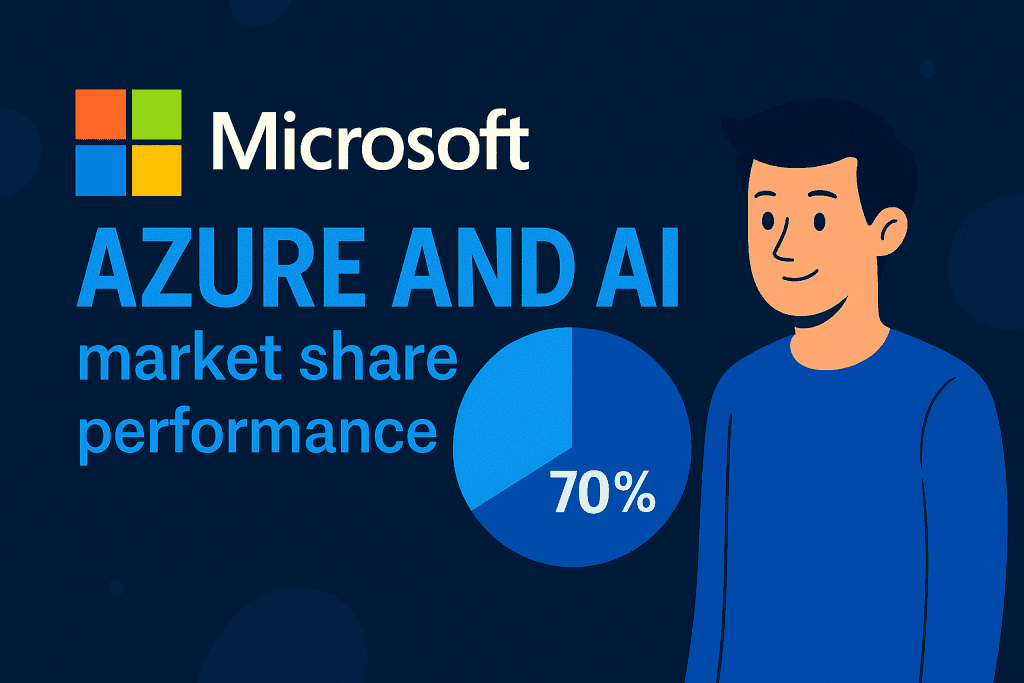
In the world of technology giants, Microsoft remains a towering presence, both in innovation and valuation. That’s exactly why we’re diving deep into Microsoft Net Worth—not just for curiosity’s sake, but to uncover the story behind its numbers. With new highs recorded and competitors hot on their heels, this review explores Microsoft’s financial performance, providing a clear, simple, and insightful breakdown for both casual readers and seasoned investors.
From stock enthusiasts to tech followers, understanding Microsoft’s financial engine reveals more than just billions. It also unveils strategy, strength, and surprising trends. Whether you’re monitoring shifts in the economic system or crafting a fresh investment plan, knowing what fuels Microsoft’s growth offers a window into broader market behaviour. This is a full review of what makes Microsoft not just relevant, but revolutionary in today’s economy.
Overview of Microsoft Net Worth
Microsoft’s net worth as of March 23, 2025, stands at a jaw-dropping $3.083 trillion. Yes, you read that right—trillion, with a T. This valuation places Microsoft among the wealthiest corporations in the world, alongside tech titans like Apple and Alphabet.
Key Features

- Diverse Product Portfolio: From Windows OS to Azure, Xbox, and LinkedIn
- Strong Cloud Presence: Azure cloud services contribute significantly to revenue
- Recurring Revenue Models: Office 365 and Microsoft 365 have millions of subscribers
- Strategic Acquisitions: GitHub, Nuance, and Activision Blizzard (pending)
- Enterprise Partnerships: Deep integration into global business ecosystems
In-depth Analysis of Microsoft Net Worth
Before we dive into the granular details, here’s a little perspective: Microsoft didn’t become a multi-trillion-dollar company overnight. It took decades of strategic pivots, tech innovation, and financial prudence. Let’s break it down further.
Performance Review

Microsoft’s stock (MSFT) has soared in recent years. In just the past 5 years, it’s tripled in market value. This growth reflects investor confidence and consistent financial delivery.
- Revenue Growth: Microsoft has reported double-digit growth YoY, especially in cloud and AI.
- Earnings Per Share (EPS): Surpassing Wall Street estimates, proving operational efficiency.
- Free Cash Flow: Robust and reinvested wisely into R&D and expansion.
Cloud & AI Boom
Azure, Microsoft’s cloud platform, is their crown jewel. It’s the second-largest cloud infrastructure provider globally, after AWS. Azure’s aggressive growth, fueled by AI integrations, is a key driver behind their rising net worth.
Design & Ecosystem Integration
Microsoft doesn’t just build tools; it builds ecosystems. Its design focus has shifted from standalone products to interconnected services. Think Teams within Microsoft 365, integrated with OneDrive, SharePoint, and Azure AI.
User Experience & Brand Loyalty
Usability isn’t just about interface—it’s also about familiarity. Microsoft Word, Excel, and PowerPoint are practically second nature to students and professionals alike. This built-in brand loyalty is priceless.
Strategic Decisions
The acquisition of LinkedIn expanded its reach in professional networking. GitHub opened doors in developer communities. Even Activision Blizzard, though controversial, aims to strengthen their stake in the gaming economy.
Comparison
Microsoft may be one of the most valuable companies in the world, but how does it compare to its biggest rivals? Below is a direct comparison of net worth, market focus, and global standing among top tech giants. Each company brings a unique strategy to the table, shaping their financial footprint in different ways.
| Company | Net Worth (March 2025) | Major Revenue Source | Market Cap Ranking |
|---|---|---|---|
| Microsoft | $3.083 Trillion | Cloud + Software Licensing | #2 |
| Apple | $3.187 Trillion | Hardware + Services | #1 |
| Alphabet (Google) | $1.998 Trillion | Advertising + Cloud | #3 |
| Amazon | $1.573 Trillion | E-commerce + AWS | #4 |
Pros and Cons
Let’s take a closer look at the key advantages and potential drawbacks behind Microsoft’s massive valuation. This balanced overview helps investors and tech enthusiasts alike understand what truly powers or pressures its trillion-dollar status.
| Pros | Cons |
|---|---|
| Strong recurring revenue stream | Heavily reliant on cloud growth forecasts |
| Industry-leading cloud services | Regulatory challenges (e.g., antitrust) |
| Impressive R&D investments | Expensive acquisitions |
| Global enterprise adoption | Increasing competition in AI and cloud |
Conclusion
Microsoft’s net worth isn’t just a number; it’s a testament to decades of calculated innovation, global influence, and technological dominance. From Windows to Azure, it’s shown a remarkable ability to stay relevant in every era of tech. With strategic foresight and unmatched adaptability, Microsoft continues to deliver results that exceed expectations.
In a market that’s often volatile, Microsoft represents something rare which is its stability that is backed by innovation. Whether you’re building long-term trading strategies or exploring the best stocks to buy, understanding Microsoft’s financial story arms you with valuable insights. Its future looks as promising as its past has been iconic. Microsoft isn’t merely surviving in a competitive market; it’s leading it, one milestone at a time.
FAQ
What factors contribute most to Microsoft Net Worth in 2025?
Azure, Office 365, and acquisitions like GitHub and LinkedIn drive Microsoft’s value by fueling growth and global expansion.
How does Microsoft Net Worth compare to other tech giants?
Microsoft trails Apple slightly but leads Alphabet and Amazon, thanks to its strong cloud presence and diverse revenue streams.
Is Microsoft a reliable investment option in today’s market?
Yes. Despite market risks, Microsoft’s solid fundamentals and global dominance make it a top long-term investment choice.
Resources
- Macrotrends. Microsoft Net Worth
- Forbes. Microsoft Company Profile
- StockAnalysis. Microsoft Market Cap
- Statmuse. Microsoft Net Worth
- Companies Market Cap. Microsoft Assets
